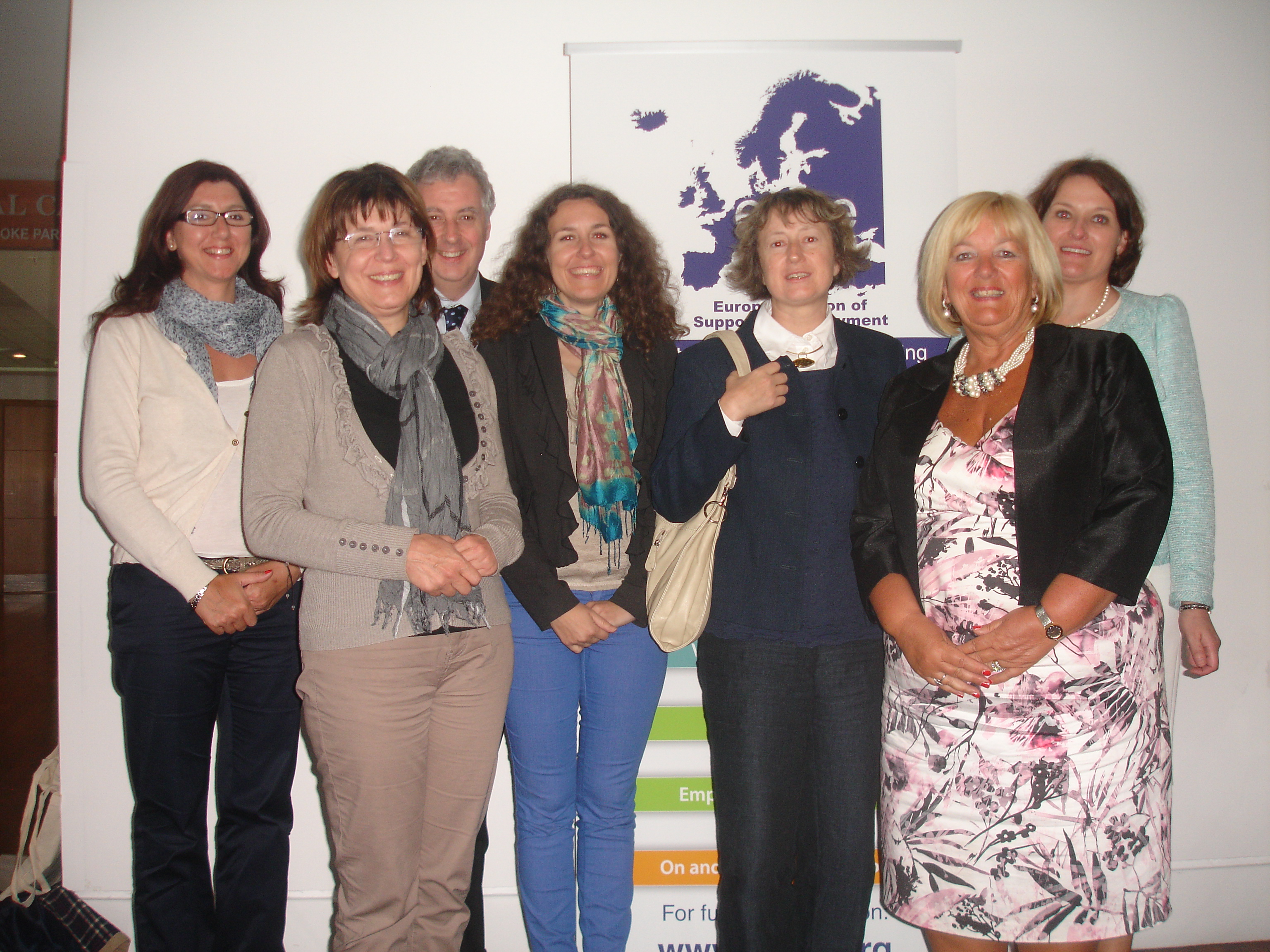Below is a report by our Committee member Mrs Nicole Byrne regarding her attendance at the European Union of Supported Employment Conference.
Last week I had the great opportunity of attending the11th Conference of the European Union of Supported Employment (EUSE), hosted by the Irish Association of Supported Employment (IASE) this took place in the historic Croke Park Stadium and Conference Centre in Dublin.
Dublin has proven to be the perfect EUSE 2013 Conference location, the conference venue was superb, accommodation and transport services were excellent and the people along with their hospitality made this a most memorable visit to their vibrant city of culture.
The theme for the Conference was ‘Building an Inclusive Europe through Supported Employment’ and this conference showcased many of the best practice initiatives and developments taking place across the world which seek to promote, equality, active citizenship, full inclusion, self-advocacy, equal opportunity inclusive of the human rights of individuals with a disability and other marginalized groups.
With 11 speakers enriching us with their expertise, experience, motivation and passion for the empowerment of people with disabilities, we also had the choice of attending from over 50 workshops running parallel during the two day course. I was spoilt for choice and found it very hard to decide which workshops to attend, finding myself wishing that I had bilocation magical talent.
Before the conference began I, together with representatives from Slovenia and Bulgaria had a private meeting with the EUSE President, Mrs Margaret Haddock and one of the Vice Presidents, Mr Robert Elston. This gave us the opportunity to discuss the Supported Employment practices in our respective countries and what the EUSE would do to assist us once we became associate members. Supported Employment within the EU has grown and it was extremely incisive to listen first hand to the methods used in other EU countries to implement Supported Employment and how these practices can be adapted to create a model applicable to Gibraltar’s population. We would in other words have the benefit of implementing tried, tested and successful ventures that could possibly be improved upon when one takes into account the advantages of Gibraltar’s close knit community.
The keynote speakers left us wanting for more, amongst my personal favourites were the following:
 Dr Paul Wehman, a Professor of Physical Medicine and Rehabilitation at Virginia Commonwealth University, and an early pioneer of supported employment. Dr Wehman’s primary interests are in transition from school to work, supported employment, business partnerships, and return to work. He spoke about how supported employment has evolved over 30 years worldwide and gave us an insight into realistic figures, goals and expectations of what the challenges for the future of Supported Employment hold.
Dr Paul Wehman, a Professor of Physical Medicine and Rehabilitation at Virginia Commonwealth University, and an early pioneer of supported employment. Dr Wehman’s primary interests are in transition from school to work, supported employment, business partnerships, and return to work. He spoke about how supported employment has evolved over 30 years worldwide and gave us an insight into realistic figures, goals and expectations of what the challenges for the future of Supported Employment hold.
Caroline Casey a visually impaired social entrepreneur is the founder of the not-for-profit organisation ‘Kanchi’ and its pioneering social franchise ‘The Ability Awards’. Serial social entrepreneur Caroline Casey is driving societal change aimed at nothing less than a complete reframing of disability. Central to her and ‘Kanchi’s’ approach is the idea that as a powerful, all-pervasive influence in society, business can lead this change – and lead it well. She motivated us with her own personal story of struggles and success.
Paul McNeive is a Chartered Surveyor, and was Managing Director of Hamilton Osborne King when the firm was sold to Savills for €50m euro. Paul started his career as a trainee in the basement of the firm and not even the loss of his legs in a fire prevented him from rising to the top position to lead 250 staff. Paul is now a motivational speaker and has written an autobiographical book on Business and Motivation, ‘Small Steps’. In ‘Small Steps’ Paul passes on lessons in positivity, motivation and goal-setting which he learned whilst in Rehabilitation Hospital and which he has used to prove that “Everything is Possible”- for example he became the first double amputee in the world to gain a helicopter pilot’s license.
The workshops ranged from Supporting employment for individuals with ASD, Transitioning from school to work, Human Rights, Equality and Employment, Mental Health and employment, Broadening the reach through Supported Employment, Independence through new technologies and Working Creatively with Employers.
All in all a worthwhile experience and my ultimate goal is for Gibraltar to become a beacon of light within the Supported Employment community.
For further details refer to the EUSE website: http://www.eusedublin2013.com/

Nicole Byrne (Gibraltar), Tatjana Dolinsek (Slovenia), Robert Elston (Vice President EUSE), Irina Papancheva (Bulgaria), Aleksandra Tabaj (Slovenia), Margaret Haddock (President EUSE), Sarah Togher (IASE) New Associate Membership meeting.
